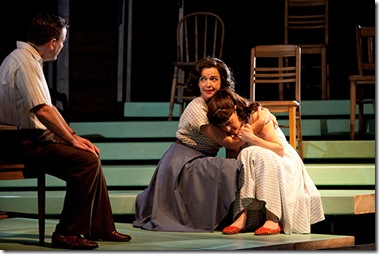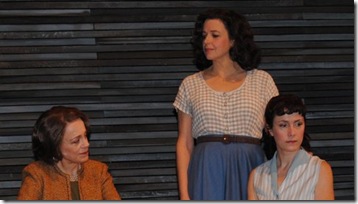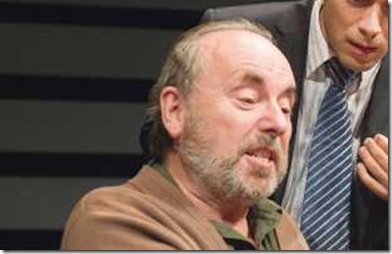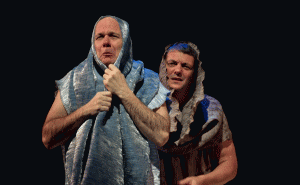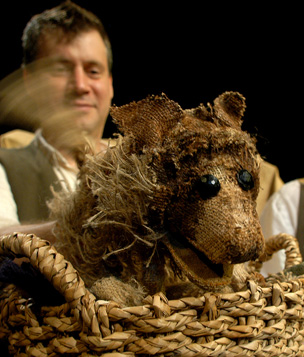Ivona, Princess of Burgundy: Gombrowicz Glitters on the Catwalk
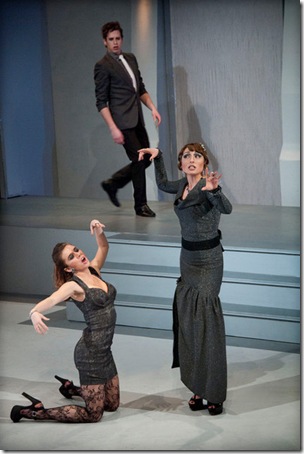 Prince(Tony Adam), Isobel (Ashley Rissler), Margaret (Jaclyn Martinez)
Prince(Tony Adam), Isobel (Ashley Rissler), Margaret (Jaclyn Martinez)
Photo. Marianne Duval
Written in Poland in 1938 but first published in 1958, Ivona (Princess of Burgundy) is Wiltold Gombrowicz’s first play. The author left Poland in 1939 and spent the rest of his life in Argentina, Germany and France, where he died in 1969. His plays would therefore seem to represent an amalgamation of European theatrical forms and experiments, filtered through possible contact with the very vibrant, expressionist oriented and politically conscious theatre milieu of post-war Argentina. It has been said that Gombrowicz never went to the theatre, but do we really know how he spent his days? In any case, telling about the hours spent with his Porteño friends in dark little cafés is much more romantic and adds to the mystery of this exceptionally brilliant playwright, about whom we really know very little.
Ekaterina Shestakova is a second year student in the M.F.A. directing programme at the University of Ottawa working under the supervision of Peter Bataklyev from Montreal. This play is her final directing project. She has produced a most exceptional staging of a highly complex play with a cast of twelve. At some points, one even forgets this is a student production, so meticulous is her directing, so clear is her artistic vision, that it is only the odd slip by the odd student, as well as the unexpected loss of energy at the end of the first part of the evening, due no doubt to the fragmented nature of the text, that one realizes where we are. But even then, such “slippage” would certainly not escape a local professional company (the NAC included) trying to perform this kind of theatre which is not normally the kind of challenge theatre groups undertake on Ottawa stages.
